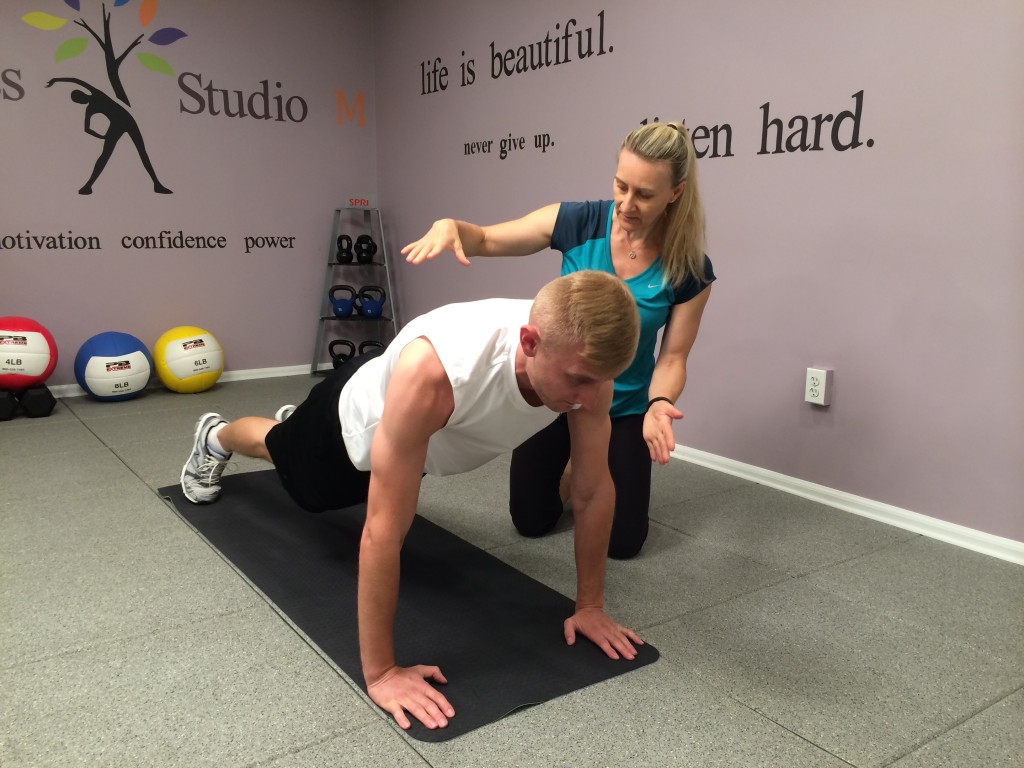The American College of Sports Medicine (ACSM-new) recommendations on the quantity and quality of exercise for adults.
The basic recommendations – categorized by cardiorespiratory exercise, resistance exercise, flexibility exercise and neuromotor exercise – are as follows:
Cardiorespiratory Exercise
-Adults should get at least 150 minutes of moderate-intensity exercise per week.
-Exercise recommendations can be met through 30-60 minutes of moderate-intensity exercise (five days per week) or 20-60 minutes of vigorous-intensity exercise (three days per week).
-One continuous session and multiple shorter sessions (of at least 10 minutes) are both acceptable to accumulate desired amount of daily exercise.
-Gradual progression of exercise time, frequency and intensity is recommended for best adherence and least injury risk.
-People unable to meet these minimums can still benefit from some activity.
Resistance Exercise
-Adults should train each major muscle group two or three days each week using a variety of exercises and equipment.
-Very light or light intensity is best for older persons or previously sedentary adults starting exercise.
-Two to four sets of each exercise will help adults improve strength and power.
-For each exercise, 8-12 repetitions improve strength and power, 10-15 repetitions improve strength in middle-age and older persons starting exercise, and 15-20 repetitions improve muscular endurance.
-Adults should wait at least 48 hours between resistance training sessions.
Flexibility Exercise
-Adults should do flexibility exercises at least two or three days each week to improve range of motion.
-Each stretch should be held for 10-30 seconds to the point of tightness or slight discomfort.
-Repeat each stretch two to four times, accumulating 60 seconds per stretch.
-Static, dynamic, ballistic and PNF stretches are all effective.
-Flexibility exercise is most effective when the muscle is warm. Try light aerobic activity or a hot bath to warm the muscles before stretching.
Neuromotor Exercise
-Neuromotor exercise (sometimes called “functional fitness training”) is recommended for two or three days per week.
-Exercises should involve motor skills (balance, agility, coordination and gait), proprioceptive exercise training and multifaceted activities (tai chi and yoga) to improve physical function and prevent falls in older adults.
-20-30 minutes per day is appropriate for neuromotor exercise.
-In addition to outlining basic recommendations and their scientific reasoning, the position stand also clarifies these new points:
-Pedometers, step-counting devices used to measure physical activity, are not an accurate measure of exercise quality and should not be used as the sole measure of physical activity.
-Though exercise protects against heart disease, it is still possible for active adults to develop heart problems. All adults must be able to recognize the warning signs of heart disease, and all health care providers should ask patients about these symptoms.
-Sedentary behavior – sitting for long periods of time – is distinct from physical activity and has been shown to be a health risk in itself. Meeting the guidelines for physical activity does not make up for a sedentary lifestyle.
Via acsm.org

